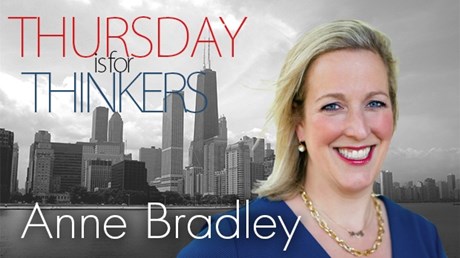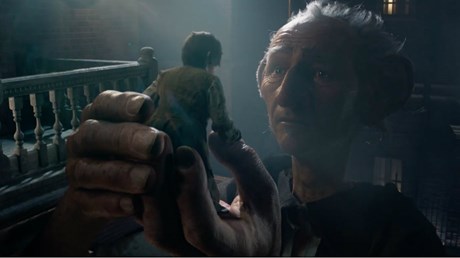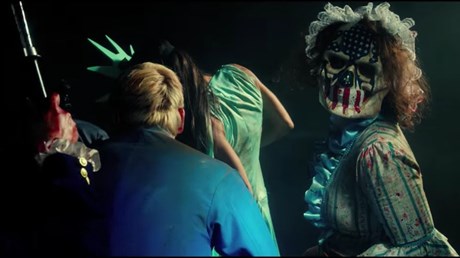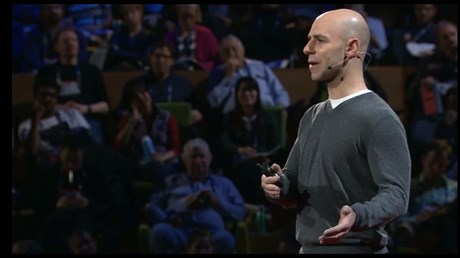Thursday 30 June 2016
God through the Lens of Cognitive Science
from
http://redirect.viglink.com?u=http%3A%2F%2Fwww.patheos.com%2Fblogs%2Ftippling%2F2016%2F07%2F01%2Fgod-through-the-lens-of-cognitive-science%2F&key=ddaed8f51db7bb1330a6f6de768a69b8
Romans 12:3
from
http://redirect.viglink.com?u=https%3A%2F%2Fwww.biblegateway.com%2Fpassage%2F%3Fversion%3DNIV%26search%3DRomans%252012%3A3&key=ddaed8f51db7bb1330a6f6de768a69b8
Trump, Christianity and the Religious Right
from
http://redirect.viglink.com?u=http%3A%2F%2Fwww.patheos.com%2Fblogs%2Ftippling%2F2016%2F06%2F30%2Ftrump-christianity-and-the-religious-right%2F&key=ddaed8f51db7bb1330a6f6de768a69b8
Why Can’t We Christians Laugh Anymore?
At a time when evangelicals feel culturally embattled, it seems we’ve lost our ability to laugh.

When 50 Shades of Grey took over the world last year, it spawned so much Christian outrage that I took to satire and wrote a piece called “A Modest Proposal: 50 Shades of Grey in Every Classroom.” In it, I commended the author for successfully ignoring ISIS and the wars around the world and instead using her artistic skills toward a far greater social ill: puritanical mores and sexual repression. Both were clearly harming marriages and hampering our over-studious youth. A copy of 50 Shadesin every classroom should do the trick! So many of my (mostly Christian) readers were incensed and offended at my “proposal” that I had to explain I was using satire. And then, to some, I had to explain satire. (My shorthand definition: “When people are deaf,” wrote novelist Flannery O’Connor, “sometimes you have to shout.”)
Last week I ventured into political commentary on social media. Along with the cascade of Republicans who were struggling to express their qualified support of Trump, I joked that I too found a way I could support Trump. First, he’d have to choose a smart, non-racist, non-misogynist running mate. Second, he’d have to behave badly enough to get impeached right away so that the comparatively virtuous VP could take his place. In response, several earnest souls chided me for failing to speak “with truth and grace.” (Really?) Other readers, mostly Christians, became so heated and vitriolic that I had to take the post down the next day.
My other writing friends tell me the same: Christian readers are grave and grim. One friend wrote a piece not long ago on PDA (public displays of affection) and was met with numerous queries and worries along the lines ...
from
http://redirect.viglink.com?u=http%3A%2F%2Ffeeds.christianitytoday.com%2F%7Er%2Fchristianitytoday%2Fctmag%2F%7E3%2F2peItubR-B0%2Fwhy-cant-we-christians-laugh-anymore.html&key=ddaed8f51db7bb1330a6f6de768a69b8
Keep those Five Stars Coming!
from
http://redirect.viglink.com?u=http%3A%2F%2Fwww.patheos.com%2Fblogs%2Ftippling%2F2016%2F06%2F30%2Fkeep-those-five-stars-coming%2F&key=ddaed8f51db7bb1330a6f6de768a69b8
Wise Decision-Making in God’s Economy
How do we know that we are pleasing God in all that we do?

Who will be our next president? It’s a question that is on everyone’s mind. In light of the upcoming presidential election, economic questions like, “Should we trade with China?” or “How do we pay for our debt?” are swirling in the minds of Americans.
Questions like these are important, but they are also overwhelming and seem to best belong with pundits and academics. The reality is, the average American has little impact on the economic policies that answer these questions. The way we affect change is far more micro than macro. It starts with everyday questions like, “How should I spend my time?” or “What job should I take?”
The futures of our families, churches, communities, and nation are grounded in our personal responsibility to make decisions that please God. From “What should I eat for breakfast” to “What ministry at church should I volunteer for?”, our responsibility as Christians is to be obedient to God’s desires in everything that we do.
As believers in Christ, we strive to hear the blessing of our Father, “Well done, good and faithful servant. Enter into the joy of your master” (Matt. 25:21). The question is, how do we do that? How do we know that we are pleasing God in all that we do? How can we make God-pleasing decisions, both big and small?
Applying the economic way of thinking helps us be wise and prudent in our decision making. Thinking economically helps us steward all of our resources—time, treasure, talent—to the glory of God.
The economic way of thinking forces us to evaluate the costs of all of our choices and thus be good stewards. When we utilize this way of thinking in our own lives, we are ...
from
http://redirect.viglink.com?u=http%3A%2F%2Ffeeds.christianitytoday.com%2F%7Er%2Fchristianitytoday%2Fctmag%2F%7E3%2FNy-4S9vYlDo%2Fwise-decision-making-in-gods-economy.html&key=ddaed8f51db7bb1330a6f6de768a69b8
My Worries about Science Funding
from
http://redirect.viglink.com?u=http%3A%2F%2Fwww.patheos.com%2Fblogs%2Ftippling%2F2016%2F06%2F30%2Fmy-worries-about-science-funding%2F&key=ddaed8f51db7bb1330a6f6de768a69b8
Wednesday 29 June 2016
Zechariah 14:9
from
http://redirect.viglink.com?u=https%3A%2F%2Fwww.biblegateway.com%2Fpassage%2F%3Fversion%3DNIV%26search%3DZechariah%252014%3A9&key=ddaed8f51db7bb1330a6f6de768a69b8
The BFG
Fairy tales need real dragons.

Roald Dahl weaves strange yarns for kids, mixing imagination and whimsy with a distinct strand of menace. The enduring popularity of his stories—Charlie and the Chocolate Factory was published in 1964!—depends on all those threads, menace included. What good is Matilda without the criminally neglectful parents or abusive Agatha Trunchbull? Or James and the Giant Peach without the cruel aunts? Or Charlie and the Great Glass Elevator without the Vermicious Knids?
The thing is, children love books that harbor cartoonishly-rendered dangers which nonetheless ring true with their own fears: bad adults, bad choices, bad space aliens. Dahl's books, like Lewis Carroll's Alice books, need that sinister edge to balance out their (sometimes literal) sugary content. It's what keeps it interesting—without the possibility of danger, the playful loses its punch a bit. G.K. Chesterton wrote about how fairy stories need “dragons.” And kids get this intuitively.
But sometimes adults don't. The result might look a bit like Steven Spielberg's The BFG: utterly harmless and totally sweet-natured, visually sophisticated and imaginative but narratively closer to Teletubbies than its source material—which is to say that if you're over the age of four, it's pretty dull.
In truth, that's not a total condemnation; there's surely a place in our world for children's entertainment that only appeals to children. Mark Rylance, fresh off his Oscar win, is great as the BFG, and Ruby Barnhill is a fetching Sophie, along with an all-star cast (Penelope Wilton, Jermaine Clement, Rebecca Hall, Bill Hader). The screenplay is by the late Melissa Mathison, best known for writing E.T. the Extra-Terrestrial. ...
from
http://redirect.viglink.com?u=http%3A%2F%2Ffeeds.christianitytoday.com%2F%7Er%2Fchristianitytoday%2Fctmag%2F%7E3%2FFmcV4H95ENM%2Fbfg.html&key=ddaed8f51db7bb1330a6f6de768a69b8
The Purge: Election Year
The opportunity for biting social critique gets swept away in a torrent of bloody destruction.

Few, if any, of CT's readers probably ought to see (or bother seeing) The Purge: Election Year. Like its predecessors (The Purge and The Purge: Anarchy), its world is drawn thinly in ways that don't actually help the very interesting concept of the plot: that in an alternate universe very close to our own, the U.S. is ruled by the NFFA—the New Founding Fathers of America, a party of apparently mostly white guys who got sick of “hypocrisy” and believe that instead of sublimating our aggressive urges, we ought to just let them all out in a twelve-hour annual “holiday” where all crime is legal, including murder.
Lest you complain that this seems unsubtle, be warned, there is nothing subtle about The Purge. The idea obviously draws on some Foucaultian idea that outright violence, in a strange way, is more “civilized” than the faux-humane social engineering of an oppressive surveillance culture—an idea the film both rebuts and seems to accept. (Drones show up in this one, by the way.) The people who suffer most from The Purge are the poor, defenseless, and homeless, who can't defend themselves and make for easy targets. And the winners are not those who manage to survive the night, but those who participate and thereby “cleanse their souls,” according to the NFFA leaders. The crime rate during the rest of the year has apparently dropped. And the elite leaders like this. It's their own version of a social safety net.
The Purge: Election Year obviously capitalizes on our own electoral chaos, trying to tap into racial and class politics while putting up a candidate the NFFA wants to squelch, preferably permanently: a senator who lost her family in the Purge ...
from
http://redirect.viglink.com?u=http%3A%2F%2Ffeeds.christianitytoday.com%2F%7Er%2Fchristianitytoday%2Fctmag%2F%7E3%2FAj3eO-2gxcI%2Fpurge-election-year.html&key=ddaed8f51db7bb1330a6f6de768a69b8
McDonald’s May Be the Most Welcoming Spot in Your Neighborhood
A fast-food skeptic finds lessons on community in an unexpected place.

I’ve blamed McDonald’s and fellow fast food joints for enabling Americans’ worst eating habits. They help us scarf down a meal in our cars, by ourselves, and in a hurry. Their cheap, greasy food steals away poor people’s paychecks, and their glowing signs interrupt our skylines. I worry that McDonald’s triumph has led us to value expediency and efficiency over all else.
But maybe I’ve missed something major about fast-food culture.
"McDonald's: you can sneer, but it's the glue that holds communities together," declared a recent headline from The Guardian. The article featured Bible study groups, Retired Old Men Eating Out (better known as “Romeo”), African American community meetings, and other gatherings that have become staples at the Golden Arches. For socioeconomically disenfranchised individuals, McDonald’s offers a crucial refuge—not just Big Macs and fries. It’s a place for “cheap and filling food…free Wi-Fi, outlets to charge phones, and clean bathrooms.”
Rather than swiftly ushering people in and out of its doors, “McDonald’s is also generally gracious about letting people sit quietly for long periods—longer than other fast-food places," the article recounts. A restaurant founded on the value of speed has become beloved for letting people linger, without stigma and without harassment. It’s open early mornings and late evenings, and easy to find in cities and suburbs and the country.
Maybe those of us who only use the drive-thru have overlooked the importance of McDonald’s as a place, rather than just a food source. Or maybe we’ve observed a homeless person tucked in a booth ...
from
http://redirect.viglink.com?u=http%3A%2F%2Ffeeds.christianitytoday.com%2F%7Er%2Fchristianitytoday%2Fctmag%2F%7E3%2FnIjMVOZvKds%2Fmcdonalds-may-be-most-welcoming-spot-in-your-neighborhood.html&key=ddaed8f51db7bb1330a6f6de768a69b8
Interview: Q+A with Adam Grant: Does Our Calling Make Us More Creative?
The author of ‘Originals’ talks about how faith factors into our ideas and work.

A psychology professor at Wharton Business School, Adam Grant probes motivations and inspirations to get at the heart of work.
His research reveals unexpected glimpses of humanity and character, like how generosity can help leaders get ahead (his 2013 bestseller Give and Take) and how the rest of us are more like iconic innovators than we think (his latest book Originals).
Packed with the stories behind the success and failure of memorable projects from Seinfeld to the Segway, Originals was the basis for Grant’s top-ranked TED talk on creativity and generated acclaim from figures like author Malcolm Gladwell and director J. J. Abrams. It’s what inspired me to explore innovation among Christians for our July/August cover story, CT Makers.
Grant offers up his expertise in organizational psychology—how individuals behave in groups and in the workplace—to discuss different ways evangelical faith may affect how we think and create.
A lot of Christians express a sense of calling, the idea that they believe God has called them to work to solve a certain problem, help a certain group of people, or go into a certain field. How does this sense of calling help or hurt original thinking?
The idea of calling when it comes to creativity is a double-edge sword. On the one hand, when people feel called, they are often willing to work harder, smarter, longer than they would have otherwise. We know that persistence is so important to creative breakthroughs. The idea that you would keep going when you encounter a wall; calling can be a big part of that.
On the other hand, there is also this sharper edge of a calling that a couple of colleagues have studied… One challenge is that it’s associated much more with ...
from
http://redirect.viglink.com?u=http%3A%2F%2Ffeeds.christianitytoday.com%2F%7Er%2Fchristianitytoday%2Fctmag%2F%7E3%2Fqxu8bwmpV4I%2Fqa-with-adam-grant-does-our-calling-make-us-more-creative.html&key=ddaed8f51db7bb1330a6f6de768a69b8
Issues in the Future of Evangelicalism
The future of evangelicalism includes harsh realities for churches.

The enduring question for the church is this: how do we fulfill the Great Commission in a rapidly changing world?
We—the church of the West—receive no exception from the question.
But it appears that despite our best efforts to keep up with the ever-morphing values and circumstances of Western cultures, the answer eludes us.
For many , the answer is not to adapt or change at all, but merely to maintain as if by some force of will the imagined halcyon days gone by of Christendom come full circle (or at least feels nostalgic for the faith of their grandfathers). But Christendom is over and no amount of wishing will make it return.
The Great Nostalgia is not the Great Commission.
The answer does not lie at some outlying extreme of either constant adaptation or constant constancy. Instead, our churches must continue the hard work of contextualizing the message of Jesus Christ to all tongues, tribes, and nations, whether in the Congo or in California.
This is just good missionary work.
The strategy needed is a counter-cultural return to biblical mission. What we need to do is advance back to the scriptural blueprint for the church on mission. What the church in the West desperately needs is a missional renaissance.
How might the church address the issues of the world? In other words, how might the church undergo this missional renaissance to embody the gospel in the post-Christendom West?
Three primary steps are needed: a rediscovery of the biblical mission, a reconsidering of the nature of the gospel, and a re-turning away from modernity.
A Rediscovery of the Mission
The last decade witnessed great progress for the evangelical church as to the rediscovery and re-awakening of her true calling and purpose. The church appears ...
from
http://redirect.viglink.com?u=http%3A%2F%2Ffeeds.christianitytoday.com%2F%7Er%2Fchristianitytoday%2Fctmag%2F%7E3%2FCIpP-1uR4Zw%2Fissues-in-future-of-evangelicalism.html&key=ddaed8f51db7bb1330a6f6de768a69b8